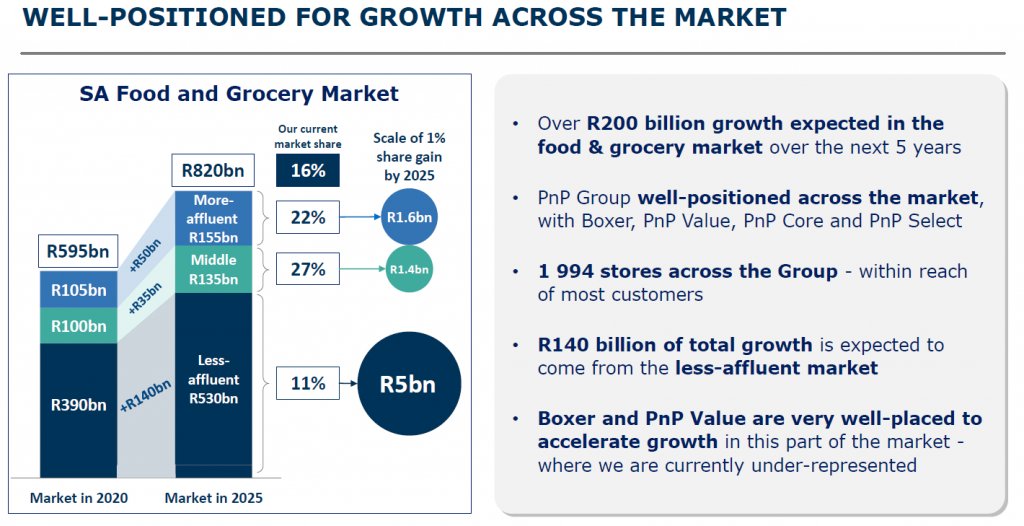
Aspen has done wonders to deleverage in the last 2-3 financial years.
Aspen’s net borrowings has drastically reduced.
Dec-18: R53.5bn
Jun-19: R38.9bn
Jun-20: R35.2bn
Jun-20: R16.5bn.
Aspen is selling non-core assets and using the proceeds to pay down debt and made another sale.
Aspen’s net borrowings has drastically reduced.
Dec-18: R53.5bn
Jun-19: R38.9bn
Jun-20: R35.2bn
Jun-20: R16.5bn.
Aspen is selling non-core assets and using the proceeds to pay down debt and made another sale.

Aspen’s Net debt / EBITDA stands at 1.74x, below Aspen’s self-imposed target of 3.0x and covanent of 4.0x
Net debt/EBITDA has many uses such as measuring amount of net income that is available to pay debt before covering interest, taxes, depreciation, and amortization expenses.
Net debt/EBITDA has many uses such as measuring amount of net income that is available to pay debt before covering interest, taxes, depreciation, and amortization expenses.

Aspen’s interest cover ratio has also strengthen to 8.57 as at from a modest low of 6.78 in H1 2021 and 6.53 as at
The interest cover ratio is used to determine how well a company can pay the interest on its outstanding debts (riskiness of lending capital to a company).
The interest cover ratio is used to determine how well a company can pay the interest on its outstanding debts (riskiness of lending capital to a company).

The huge debt pile of R53.5bn in 2019 led to Aspen halting dividend payments which it reinstated in Sep 2021 paying a dividend of 262c.
The debt problems started when it went on a shopping spree just like with Rebosis and many other companies.
The debt problems started when it went on a shopping spree just like with Rebosis and many other companies.
https://twitter.com/MaanoMadima/status/1451469672629612547?t=wsm3WS2ksDQUzz9wQGys7g&s=19
On 22 Oct 2021, Aspen has concluded an agreement with Acino Pharma AG (a company incorporated in Switzerland), in terms of which Acino will acquire a product portfolio of six products for a consideration of R1.8 billion, plus the cost of the related inventory from Aspen.
The six products included in the transaction are sold under the brand names, Altosec, Aspen Granisetron, Ciavor, Grantryl, Trustan and Zuvamor in South Africa and recorded revenue of R512 million in the financial year ended 30 June 2021.
Aspen and Acino will enter into a Manufacturing and Supply Agreement in terms of which Aspen will supply the Aspen manufactured products to Acino for 7 years.
Aspen intends to use the proceeds (R1.8bn) from to reduce the Group’s debt.
Aspen is in a fight to reduce debt.
Aspen intends to use the proceeds (R1.8bn) from to reduce the Group’s debt.
Aspen is in a fight to reduce debt.
In Jun 2021, Aspen announced that a joint financing package has been extended to it by IFC (World Bank), Proparco (subsidiary of Agence Francaise development, the French Government’s Development Finance Institution, to name but a few as co-financiers in a syndicated loan.
The debt financing package sourced from the DFIs was for an aggregate of €600 million and is structured as an amortising loan, with a two year grace period and with the final loan
instalment being due up to seven years after its effective date.
instalment being due up to seven years after its effective date.
The €600m, in its entirety, was applied to refinance a portion of Aspen’s existing EUR-denominated syndicated debt facilities.
Debt to pay debt.
Benefits that Aspen will gain from the Funding are:
1. Increased loan tenor;
2. Diversification of debt funder base.
Debt to pay debt.
Benefits that Aspen will gain from the Funding are:
1. Increased loan tenor;
2. Diversification of debt funder base.
The IFC refinancing package of €600m 7-year amortising term loan comes with Pro-forma equal payments of R1 billion in March & September totalling R2 billion repayment per calendar year, commencing from March 2024. 

• • •
Missing some Tweet in this thread? You can try to
force a refresh





















